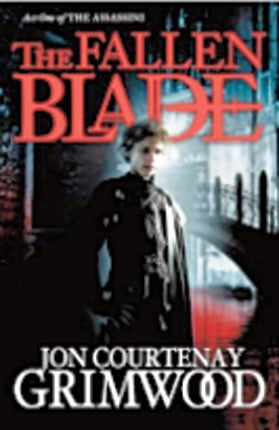The Fallen Blade, By Jon Courtenay Grimwood
Medieval mystery makes the cut

One of the problems some people have with fantasy fiction is that so much of it deals with people with made-up names struggling to save kingdoms that were never on any map save in the endpapers of the book.
Some writers get past this by being extraordinarily detailed in their world-building. Tolkien's Middle-earth came equipped with millennia of history and a number of fully developed languages. Another way, the one Jon Courtenay Grimwood adopts, is to set your tales of terror, danger and adventure in a world that is our world turned sideways and given a twist. We suspend our disbelief precisely because he engages us in the question of what is different and why.
So it is not just that the world of The Fallen Blade is a medieval Venice with spells, werewolves and someone who acts like a vampire but may be the child of an angel. In this 15th-century Venice, the Republic fell long ago, to be replaced by a dynasty descended from Marco Polo and Mongol princesses. A Mamluk dynasty rules Egypt and Byzantium seems likely to stand for a while longer, but the realities of power are much the same as in our own Middle Ages. Sea power is the key to trade and trade the key to wealth – and Cyprus is a prize worth dynastic marriages and the sending of great armadas.
Some of the stories are the same. Venice's admiral, and secret master of its corps of assassins, is Atilo, who bought the survival of a defeated Tunis by becoming the servant of the doge. He woos and wins the noble Desdaio and his subordinate Iacopo does his best to drive him to mad jealousy – but things can have different outcomes. Grimwood plays brilliantly with an audience's tendency to guess and look for plot spoilers. He reminds us that the author, and not the reader, is in control.
Similarly, we do not know the true nature of Atilo's slave and protégé, the boy Tycho. True, he does not like sunlight, drinks blood and has difficulty crossing water – but he has memories of a long-gone Vinland settlement, and those in the know refer to him as the Fallen. This is a book full of mysteries that remain unsolved and outcomes that remain cloudy. Grimwood creates a fascinating world and involving characters – most importantly, he makes us want to read the next two volumes of the trilogy.
Subscribe to Independent Premium to bookmark this article
Want to bookmark your favourite articles and stories to read or reference later? Start your Independent Premium subscription today.

Join our commenting forum
Join thought-provoking conversations, follow other Independent readers and see their replies